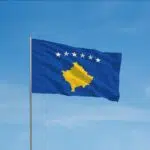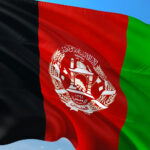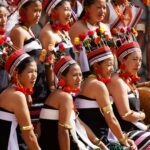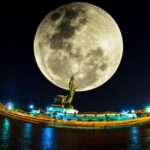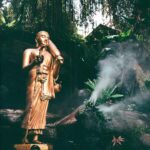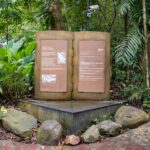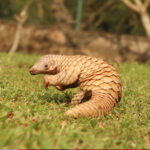Lui-Ngai-Ni is celebrated every year on February 15 in the northeastern state of Manipur in India. This rural festival is intended to bring together the many tribes of Naga people in the state. Even though Lui-Ngai-Ni is an important festival in the state of Manipur, those living outside of it are very unlikely to celebrate it. On this day, schools, offices, and businesses may remain shut in Manipur. In the mid-1980s, Lui-Ngai-Ni became an iconic festival for Naga tribes, and it has been a state holiday in Manipur since 1998. Happy Lui-Ngai-Ni to those who celebrate!
History of Lui-Ngai-Ni
Lui-Ngai-Ni is an agrarian festival. This seed-sowing festival is celebrated by the Naga tribes of Manipur. The Naga people live in the northeastern parts of India and northwestern Myanmar and have a significant population in Manipur. Lui-Ngai-Ni is an occasion for the Naga tribes in Manipur to come together and celebrate their rich cultural heritage and strengthen Naga solidarity. Nagas of Manipur include Mao, Tangkhul, Moyon, Anal, Tarao, Chothe, Koireng, Thangal, Puimei, Monsang, Lamkang, Chiru, Kharam, Maram, Poumai, Zeme, Liangmai, Rongmei, and Maring.
But what does the word Lui-Ngai-Ni mean? Interestingly, the name of the festival is actually made up of three native words. The name is a reflection of diverse heritage as it is made up of three words in three different Naga languages! ‘Lui’ is a shortened version of ‘Luiraphanit,’ which means ‘seed sowing festival’ in the Tangkhul language, while ‘ngai’ is the Rongmei word for ‘festival.’ Lastly, ‘ni’ also means ‘seed sowing festival’ in the Mao language. This festival is celebrated by asking the god of crops to bless the sown seeds and ensure their good health. The festival is celebrated in hopes of a fruitful harvest.
Various cultural activities are part of the Lui-Ngai-Ni festival. People celebrate the day by wearing traditional clothes, beating drums, and dancing to folk songs. The day is filled with merriment. Lui-Ngai-Ni is celebrated in all the Naga inhabited areas in Manipur and the main festivity is hosted alternately between the main Naga district headquarters in the state.
The traditions of the festival are rooted in age-old customs and practiced by almost every Naga person. This is also a wonderful time to visit the state of Manipur.
Lui-Ngai-Ni timeline
This happens under British rule.
The state merges with India through the Treaty of Accession.
It is accepted as a full-fledged state of India.
Manipur celebrates 50 years of statehood.
Lui-Ngai-Ni FAQs
Why is Manipur so famous?
The state has a rich cultural past dating back centuries. It is the birthplace of Raas Leela — a renowned form of classical dance which was created by Maharaja Bhagya Chandra. Manipur is also the birthplace of modern polo and the locals call this game ‘sagol kangjei’.
Why is Manipur called the “Land of Jewels”?
Manipur is nicknamed the “Land of Jewels” because it is surrounded by nine hills with an oval-shaped valley at the center, a naturally made jewel.
Why is Manipur so poor?
The poverty of the hills is reflected in illiteracy, ill health, unemployment, failure of commerce, and the general lack of development, and the resulting dissatisfaction is manifest in political agitations, including the problem of insurgency in the hills.
Lui-Ngai-Ni Activities
Greet your Manipuri friends
Celebrate Lui-Ngai-Ni by greeting your Manipuri friends. You may also join in the celebrations and partake in dancing, singing, and seed sowing. This is a wonderful way to learn about a different culture.
Plant a tree
Since Lui-Ngai-Ni is a seed sowing festival, you can celebrate the day by planting a tree. You may also ask for blessings for your plant so that it grows up to be healthy and robust.
Visit Manipur
A great way to observe Lui-Ngai-Ni is by visiting Manipur. It is a beautiful tourist state with many wonderful sights to see. The month of February also offers hospitable weather to tourists.
5 Interesting Facts About Manipur
Manipur has a hidden meaning
It means “a place of gems” or “the jeweled land.”
The land of Gandharvas
Manipur is believed to be the home of the dancing spirits.
A floating national park
It’s home to Keibul Lamjao National Park, the world’s only floating national park.
The world’s oldest polo ground
The polo ground dates back to the 14th Century.
Permission is needed to visit
Before visiting Manipur, domestic and international tourists have to apply for a permit.
Why We Love Lui-Ngai-Ni
It’s a celebration of nature
Lui-Ngai-Ni is the celebration of nature, more specifically of agriculture and harvest. On this day, worshippers ask for blessings on behalf of nature and pray that the harvest is bountiful.
It’s steeped in tradition
Celebrating Lui-Ngai-Ni keeps alive the age-old traditions of the Naga people. This is a way to pass down one’s culture and familiarize other people with the Naga way of life.
It brings people together
Lui-Ngai-Ni is as much a celebration of agrarian ways as much as it is an attempt to bring the Naga tribes together. On this day, the tribes renew their solidarity and celebrate their heritage.
Lui-Ngai-Ni dates
| Year | Date | Day |
|---|---|---|
| 2025 | February 15 | Saturday |
| 2026 | February 15 | Sunday |
| 2027 | February 15 | Monday |
| 2028 | February 15 | Tuesday |
| 2029 | February 15 | Thursday |






